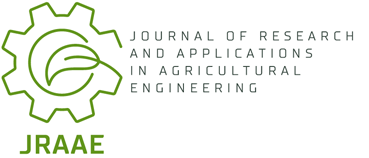Current issue
Online First
Archive
Instructions for Authors
Guide for Authors
Peer Review Policy
Research Ethics Policy
Ghostwriting and Guest Authorship
Copyright
Open Access Policy
Plagiarism
About the Journal
Aim and Scope
Scientific Board
Publisher
Editorial Board
Indexing in Databases
Personal Data Protection
Repository Policy
Contact
ORIGINAL PAPER
Organic bee keeping in Europe and in the world
Journal of Research and Applications in Agricultural Engineering 2011;56(4):102-106
KEYWORDS
ABSTRACT
The First International Conference on Organic Bee keeping took place in August 27th - 29th, 2010 in Nessebar in Bulgaria. The basic rules of organic apiaries in the different countries in the world were the main topics of conference. Apimondia (with its President Gilles Ratia) was the main organizer and well known in bee keeping science Stefan Bogdanov - the coordinator of conference. The most important thing is to elaborate the plan of development and running organic bee keeping in the hard environmental conditions. 0,1-13,0% of total beekeepers have organic apiaries in 9 countries in EU. In Bulgaria, Germany, France, Greece, Italy and Spain number of certificated apiaries is from 1 000 to 100 000, what is 0,1- 8,0% of total number of bee colonies. The most of them are in Italy. There are 11 bee colonies per one beekeeper in Italy to 300 in Bulgaria and Spain. There are 100 000 organic bee colonies in Italy, 57 600 in Spain and 44 861 in Bulgaria. In the most of European countries which aren't EU members organic bee keeping is on the beginning of development way. Brasil is the biggest producer of organic honey in the world (40 000 tonnes). Also Argentina and Mexico are very important producers of organic honey (1 279 and 1 150 tonnes).
REFERENCES (9)
1.
Rozporządzenie Rady nr 834/2007 z dnia 28 czerwca 2007 r. w sprawie produkcji ekologicznej i znakowania produktów ekologicznych (Dz.U.L. 189 z 20.07.2007 r., s. 1).
2.
Ustawa z dnia 25 czerwca 2009 r. o rolnictwie ekologicznym (Dz.U. 09. Nr 116, poz. 975).
3.
Neumann P., Carrek N.L.: Honey bee colony losses. Journal of Apicultural Research, 2010, 49(1), p. 1-6.
4.
Calderone N.W.: Drone Brood Removal for the Management of Varroa destructor. 2008. http://www.masterbeekeeper.org... e.htm.
5.
Charierre J.D., Imdorf A.: Oxalic acid treatment by trickling against Varroa destructor: recommendations for use in central Europe and under temperate climate conditions. Bee World, 2002, 83(2), p. 51-60.
6.
Bogdanov S.: Organic Beekeeping in different countries. Apimondia First World Conference on Organic Beekeeping. Program and abstracts, 27-29 August, 2010, Sunny Beach, Bulgaria, p. 12-14.
8.
Thrasyvoulou A., Tananaki C., Karazafiris E., Goras G.: Improvements of regulations on organic farming to facilitate the practice of organic beekeeping. Apimondia First World Conference on Organic Beekeeping. Program and abstracts, 27-29 August, 2010, Sunny Beach, Bulgaria, p. 67.
9.
Rozporządzenie Rady (EWG) nr 2092/91 z dnia 24 czerwca 1991 roku w sprawie produkcji ekologicznej produktów rolnych oraz znakowania produktów rolnych i środków spożywczych (Dz.U. L 198 z 22.7.1991, str. 1; z późn. zm.).
We process personal data collected when visiting the website. The function of obtaining information about users and their behavior is carried out by voluntarily entered information in forms and saving cookies in end devices. Data, including cookies, are used to provide services, improve the user experience and to analyze the traffic in accordance with the Privacy policy. Data are also collected and processed by Google Analytics tool (more).
You can change cookies settings in your browser. Restricted use of cookies in the browser configuration may affect some functionalities of the website.
You can change cookies settings in your browser. Restricted use of cookies in the browser configuration may affect some functionalities of the website.


